
Panelists discuss how pivotal trials and real-world evidence have reinforced CAR T-cell therapy’s high response rates, deep remissions, and durable outcomes in relapsed/refractory multiple myeloma.

Your AI-Trained Oncology Knowledge Connection!


Panelists discuss how pivotal trials and real-world evidence have reinforced CAR T-cell therapy’s high response rates, deep remissions, and durable outcomes in relapsed/refractory multiple myeloma.
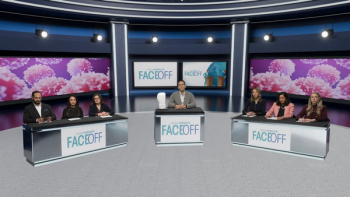
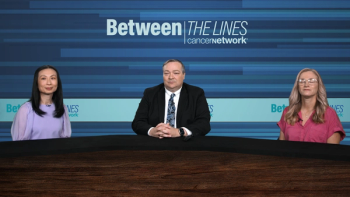
Explore the evolving treatment strategies for high-risk smoldering multiple myeloma, emphasizing early intervention and recent clinical advancements.

Panelists discuss how integrating both tissue and liquid genomic testing at diagnosis and progression improves detection of tumor heterogeneity and informs personalized treatment decisions in metastatic breast cancer.
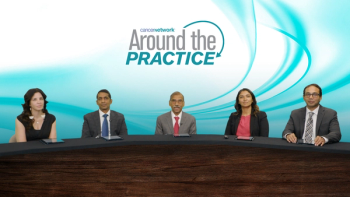
Experts discuss the rapid advancements in BCMA-directed bispecific antibodies for relapsed/refractory multiple myeloma, highlighting improved response rates and treatment integration.
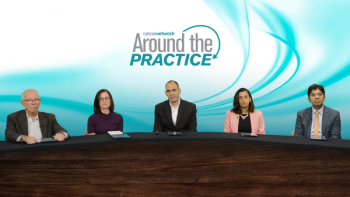
Explore the latest advancements in oral hypomethylating agents for MDS and CMML, emphasizing their efficacy, patient convenience, and treatment strategies.
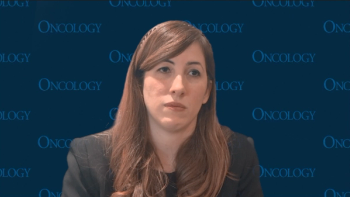
Findings from David Rimm, MD, PhD, suggest that there may be an inverse relationship between HER2 and TROP2 expression among patients with breast cancer.
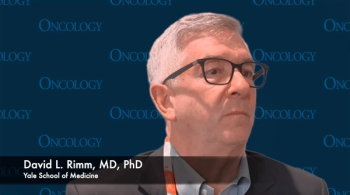
A pathologist is often needed to definitively diagnose a patient with cancer based on the tissue testing results.

Tissue samples collected from patients with breast cancer during treatment may help explore therapy selection and predict toxicities.
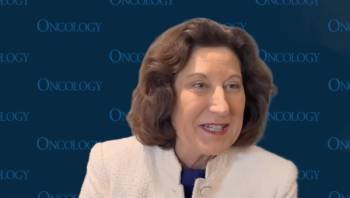
Clinicians can reduce doses and mitigate toxicities in an easier fashion when administering elacestrant-based treatment for those with advanced breast cancer.
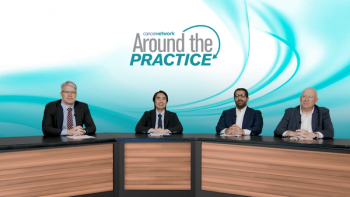
The experts focus on clinical trial evidence supporting the use of combination therapies in EGFR-mutant mNSCLC. The panel reviews key data from the MARIPOSA and FLAURA trials, highlighting differences in patient populations, CNS imaging protocols, and reported outcomes. They emphasize that routine CNS surveillance allows for a more accurate assessment of intracranial progression-free survival and can inform optimal therapy selection. MARIPOSA trial data demonstrate that amivantamab plus lazertinib significantly improves intracranial progression-free survival compared to osimertinib monotherapy, effectively doubling outcomes in patients with baseline brain metastases. The discussion also addresses the importance of patient stratification based on risk factors, including high tumor burden, liver metastases, p53 mutations, and circulating tumor DNA levels, which may impact prognosis and response to therapy. The panel emphasizes that combination therapy is beneficial across populations, not limited to high-risk patients, and stresses the significance of first-line therapy selection in improving long-term outcomes. Safety profiles and tolerability are also introduced, noting the need for patient education and shared decision-making.

This opening segment establishes the program’s focus on EGFR-mutant mNSCLC, emphasizing the importance of identifying high-risk patient populations and discussing new combination therapies. The panel introduces the challenges in managing patients with CNS metastases, highlighting the need for effective systemic treatments that also demonstrate intracranial activity. Key agents, such as osimertinib and combinations with amivantamab and lazertinib, are briefly introduced, demonstrating their potential to improve progression-free survival and overall survival. The experts discuss the critical balance between treatment efficacy and patient quality of life, noting the importance of considering performance status and potential adverse events when selecting therapies. This segment also highlights that treatment decisions should be individualized, incorporating shared decision-making with patients. The speakers stress that CNS monitoring and early intervention are increasingly essential, and combination regimens are being explored as first-line strategies to maximize long-term benefit.
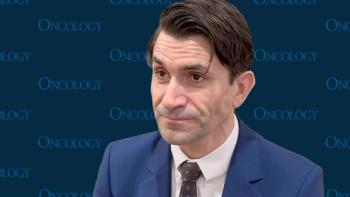
The mechanism of CTO1681 may allow it to reduce the production of a broad range of proinflammatory cytokines in DLBCL.

Younger and fitter patients with relapsed/refractory multiple myeloma were more likely to receive bispecific antibodies in community oncology settings.

Experts discuss the challenges and strategies in managing patients with inadequate responses to preoperative cancer treatments, emphasizing the need for clinical trials.

Experts discuss tailored approaches to neoadjuvant therapy for esophageal and gastroesophageal junction cancers, emphasizing multidisciplinary care and surgical precision.
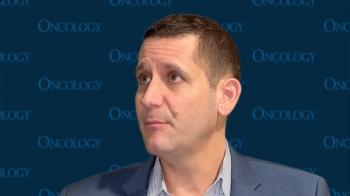
Mechanistic treatment benefits were observed in the phase 2 STEM trial for patients with multiple myeloma.
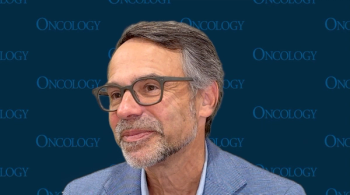
Data from a retrospective cohort study showed that one-fifth of patients with multiple myeloma received bispecific antibodies in rural community settings.

Being able to treat patients with cevostamab who have multiple myeloma after 1 to 3 prior lines of therapy vs 4 lines may allow for better outcomes.
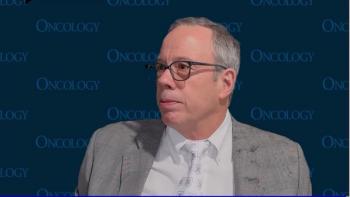
Using the monitoring of symptoms and quality of life platform may provide a quick and efficient system for patients to submit outcome data.
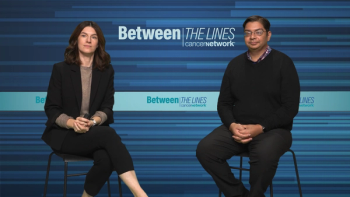
Concludes that early EGFR-MET co-targeting can redefine first-line EGFR-mutant NSCLC management and improve survival outcomes.

With many treatments emerging in the EGFR-mutated lung cancer landscape, sequencing therapy has emerged as a key consideration for these patients.
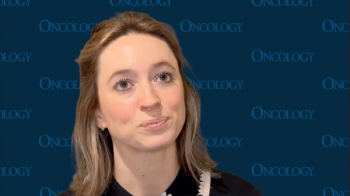
Although a greater risk of CNS relapse may emerge with immunotherapy-based backbones, toxicities associated with chemotherapy are avoided.

Current FDA expectations may allow patients to return to their community physicians at 2 weeks after administration of anitocabtagene autoleucel.
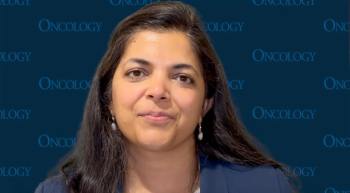
Treatment with CAR T-cell therapy for LBCL, like liso-cel, can impact QOL based on restrictions made on the label.

The 48-month OS rate for the TRANSFORM plus long-term follow-up study was 61.5% for patients with R/R LBCL.

Based on its mechanism of action, anito-cel may cause fewer instances of cytokine release syndrome and delayed toxicities vs other therapies.

Reveals that resistance complexity and heterogeneity were notably lower with dual-targeted treatment.

Experts discuss tailored approaches to neoadjuvant therapy for esophageal and G-junction cancers, emphasizing the importance of multidisciplinary care.

Explore the evolving landscape of cancer treatment strategies, focusing on guideline-based management and the impact of multimodal approaches on patient outcomes.